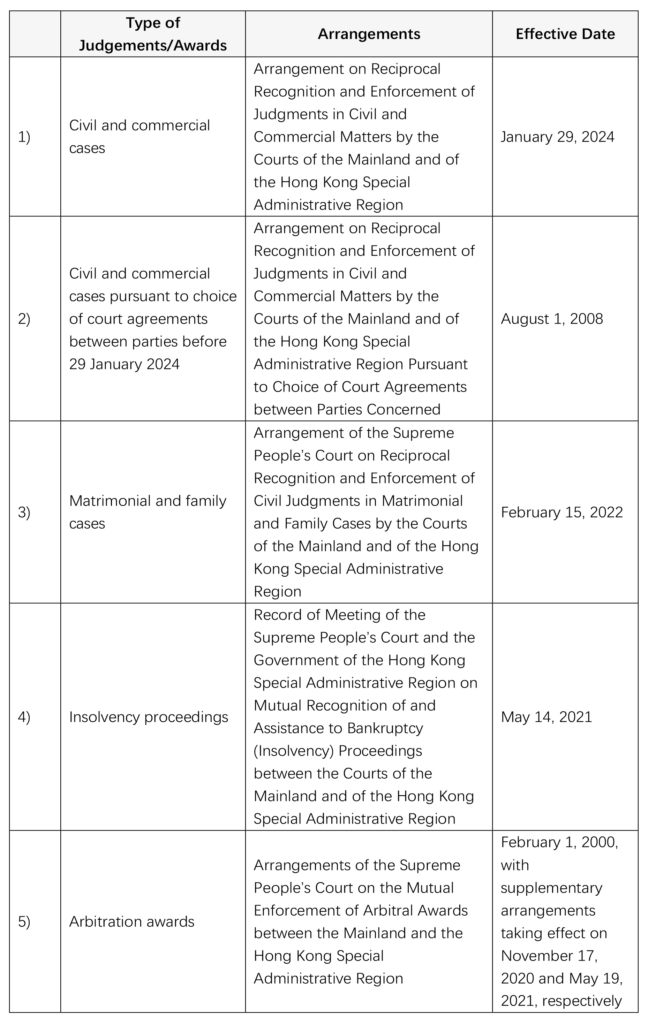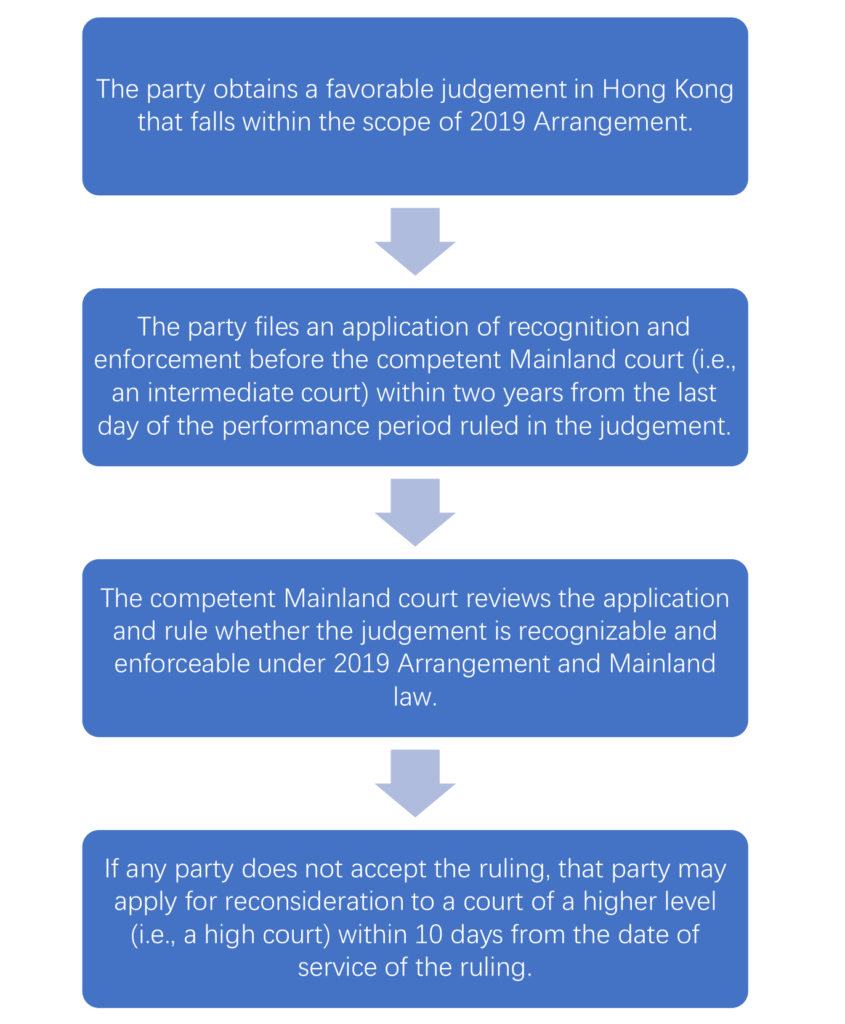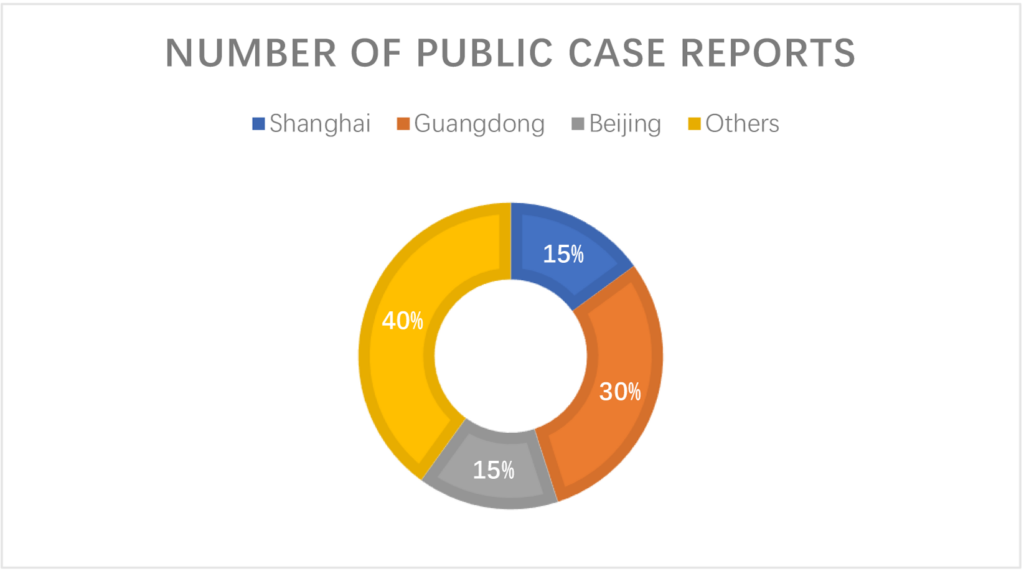On 10 November 2023, the Government of Hong Kong Special Administrative Region of the People’s Republic of China (“Hong Kong”) published the Mainland Judgments in Civil and Commercial Matters (Reciprocal Enforcement) Rules and the Mainland Judgments in Civil and Commercial Matters (Reciprocal Enforcement) Ordinance (Commencement) Notice, announcing that the above ordinance would come into effect on 29 January 2024. This move means that the long-awaited and widely discussed Arrangement on Reciprocal Recognition and Enforcement of Judgments in Civil and Commercial Matters by the Courts of the Mainland and of the Hong Kong Special Administrative Region, which was signed by the Supreme Court of the Mainland of the People’s Republic of China (“Mainland”) and the Hong Kong Government on 18 January 2019 (“2019 Arrangement”), would finally be put into practice in January 2024. According to the 2019 Arrangement, it can be expected that the Supreme Court of the Mainland would soon issue a judicial interpretation to confirm the same. This article seeks to discuss the changes under the 2019 Arrangement and its legal implications.
Changes Made Under 2019 Arrangement
The 2019 Arrangement supersedes the Arrangement on Reciprocal Recognition and Enforcement of Judgments in Civil and Commercial Matters by the Courts of the Mainland and of the Hong Kong Special Administrative Region Pursuant to Choice of Court Agreements between Parties Concerned signed on 14 July 2006 (“2006 Arrangement”) and opens a new chapter for enhancement of judicial assistance between the courts of the Mainland and Hong Kong. It is noted that the 2019 Arrangement solidifies significant changes in the areas discussed below.
Civil and Commercial Cases in Nature
Under the current mechanism, only a very limited scope of judgements could be recognized reciprocally and enforced between the Mainland and Hong Kong. The 2006 Arrangement requires, as one of the prerequisites for its application, that parties concerned must agree in writing that the courts of either the Mainland or Hong Kong have the exclusive jurisdiction over specific civil or commercial contractual disputes between them.
The 2019 Arrangement largely expands the scope of enforceable judgements to cover cases that are civil and commercial in nature by removing the requirements of agreements on choice of court between the parties concerned and limiting the excluded cases to an exhaustive list. This extends the scope of enforceable judgements to cover more cases with different causes of action, for example, torts. For contractual disputes, the application of the 2019 Arrangement will not necessarily be subject to the choice of court agreement anymore. Moreover, the 2019 Arrangement clearly sets out that orders on civil compensation ruled in criminal cases are also covered under the 2019 Arrangement.
“Legally Effective” Judgements
The 2006 Arrangement requires the judgements covered thereunder to be “enforceable and conclusive”. However, due to retrial proceedings in the Mainland, the determination of a conclusive judgement may be difficult because different opinions exist as to what can be called “conclusive”.
The 2019 Arrangement resolves this issue by defining enforceable judgements as “legally effective” and providing clear guidance in this respect. Specifically, for judgements made by the courts of the Mainland, the judgements that are legally effective can be classified into three categories: 1) the judgements of the second instance, 2) the judgements of the first instance that cannot be appealed by law or are not appealed within the appeal period, and 3) the above judgements made in retrial proceedings.
The 2019 Arrangement also removes the listing of the primary courts of the Mainland whose judgements can be enforced under the Arrangement. This change repealed the limit on the scope of primary courts and to some extent reflects the judicial reform by the Mainland courts in the past years, which is to transfer the authority for adjudicating foreign-related cases to courts at the primary level.
Monetary and Non-Monetary Judgements
The 2006 Arrangement sets out that only monetary judgements could be enforced under the Arrangement. The 2019 Arrangement takes a big step forward by including non-monetary judgements into the scope of enforceable judgements, thereby allowing the parties concerned to seek enforcement of specific performance of, for example, transfer of certain properties or certain acts.
The 2019 Arrangement further makes it clear that it recognizes the judgements of disbursement and disposal of properties, as well as the corresponding interest, litigation fees, late performance fees and late performance interests.
Exclusion of Preservation Measures
On the other hand, it is noteworthy that preservation orders made by the Mainland courts as well as injunctions and interim relief orders made by Hong Kong courts are excluded from the 2019 Arrangement. This means that the mutual assistance in interim measures is still a unique advantage of arbitration, since an applicant of arbitration in Hong Kong could apply for an asset preservation before a court of the Mainland on the basis of the ongoing Hong Kong arbitration under the Arrangement Concerning Mutual Assistance in Court-Ordered Interim Measures in Aid of Arbitral Proceedings by the Courts of the Mainland and of the Hong Kong Special Administrative Region, while litigation in Hong Kong cannot provide such a recourse.
However, the 2019 Arrangement states that after the signing of the 2019 Arrangement, the Supreme Court of the Mainland and Hong Kong Government may enter into supplementary documents on mutual assistance in relation to preservation and interim relief, which opens doors to mutual assistance between courts of the jurisdictions in these areas.
More Judgements Expected for Enforcement
Under the 2019 Arrangement, parties that obtain favorable judgements in either the Mainland or Hong Kong could seek enforcement of the judgements in the other jurisdiction via the procedure of recognition and enforcement in the Mainland or registration in Hong Kong. This could help prevent parallel or duplicate proceedings and therefore reduce the costs of legal actions significantly. This also gives the claiming party more leeway for it to decide where to file a lawsuit, enabling it to take into account the difference in applicable laws, legal systems, etc., in the two jurisdictions.
The 2019 Arrangement will be applicable to the judgements made by the courts of the Mainland or Hong Kong after the date that the 2019 Arrangement takes effect, and, considering the time taken by a lawsuit from start to finish, the increase in case numbers may not be immediately evident, but the impact on the dispute resolution agreements between parties may sooner become palpable, paving way to a rising number of case reports in the long run.
After the 2019 Arrangement comes into effect, the judicial assistance in enforcement of judgements or awards between the Mainland and Hong Kong will cover a wide range of cases as follows:

Recognition and Enforcement Procedures in the Mainland
Compared to the 2006 Arrangement, the 2019 Arrangement also details and amends some procedural rules for application for recognition and enforcement, for example, applicants could apply for the recognition and enforcement before courts in their own domiciles in Mainland, which is not allowed under the 2006 Arrangement.
In the meantime, Article 10 of the 2019 Arrangement stipulates that the time limits, procedures and manner of applying for recognition and enforcement will be subject to the laws of the requested place. In accordance with the Mainland law, the procedures of recognition and enforcement before the courts of the Mainland should be as illustrated below.

Like the 2006 Arrangement, the 2019 Arrangement sets out the situations in which the courts concerned are empowered to refuse the recognition and enforcement of judgements requested to be enforced. Also, the Mainland courts can review the judgement to be enforced in accordance with the basic principles and social public interests of the Mainland. There have been case reports that the defending parties tried to thwart the enforcement of the judgements on the grounds of fraudulence and violation of social public interests.
In this sense, in a case that a claiming party intends to seek enforcement of a judgement made by a Hong Kong court in the Mainland, we believe that earlier involvement of the Mainland lawyers should be of great help to secure an enforceable judgement.
Conclusion
Recognition and enforcement cases under the framework of the 2006 Arrangement in the Mainland are indeed very limited. We used the keyword “2006 Arrangement” to search for public case reports issued by the courts of the Mainland and only found 20, and most of them were heard by courts in Guangdong, Shanghai and Beijing.

Although this figure may be inaccurate as the Mainland courts may not disclose all such cases, it still reflects the rarity of enforcement cases under the 2006 Arrangement.
As discussed above, it is widely recognized that the 2019 Arrangement will drive up the number of recognition and enforcement cases between the jurisdictions of the Mainland and Hong Kong. However, the 2019 Arrangement is not the only choice for parties in a dispute, and a comprehensive strategy should be tailor-made for each case, to make full use of the current judicial resources for a favorable outcome and realization of purpose. On the other hand, many aspects of the legal practices of the Mainland courts remain uncertain until further clarification is provided, including the standards for rejection to enforce a judgement, the procedures and time limit of a recognition and enforcement case, etc.
